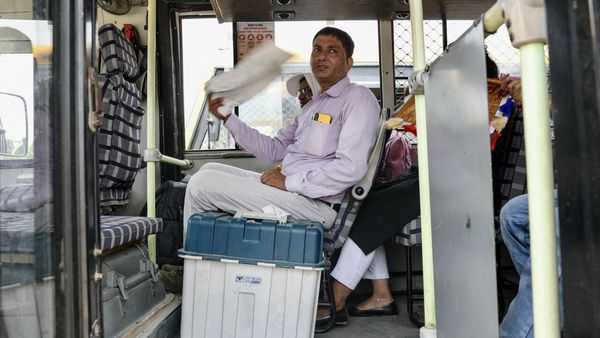
The US, Germany and other countries are putting the climate crisis at the heart of their national security plans but the UK is failing to do likewise, experts have told the government.
Extreme weather and heat are killing increasing numbers of people, damaging economies and forcing millions around the world to flee their homes, adding to an already unstable geopolitical situation, MPs were told on Tuesday at a select committee hearing.
The climate crisis has become a “threat multiplier” that can add to instability and the risk of unrest in many countries and is therefore an international security issue, parliament’s environmental audit committee was told. The increasing dangers of floods, droughts and other damage to vital infrastructure also makes the climate crisis a national security problem within the UK.
But while the US has taken a “whole government” approach to the crisis, ordering the security services to focus on climate risks in their assessments, the UK has lagged behind, according to experts giving evidence.
Erin Sikorsky, the director of the Center for Climate and Security in the US, said: “The US government has put climate change and national security at the front of its foreign security policy agenda under [president Joe] Biden. The Department of Homeland Security has been involved.”
Even though most of the Republican party leadership and the former president Donald Trump have been vehemently opposed to action to cut greenhouse gas emissions, when it comes to national security there has been cooperation on the climate. “It has really been a bipartisan issue for over a decade,” Sikorsky said.
Germany has also integrated climate considerations into all government departments. Kira Vinke, of the German Council on Foreign Relations thinktank, said. “[There has been a] whole government approach, seeing it through a national security and human security lens.”
In the UK, however, not enough has been done to adapt to the impacts of extreme weather and prepare for future risks, said Lady Brown, the chair of the adaptation subcommittee at the government’s statutory adviser, the Climate Change Committee.
“We are not seeing implementation and action,” she said. “We are not very ready at all [for the impacts of extreme weather].”
Helen Adams, a senior lecturer on disaster risk reduction at King’s College London, said part of the problem in the UK was that there was not enough interest in the issue from Downing Street.
“We are not acting at scale, things are not getting to a high enough level [of government],” she said. “It has to come from the top down.” Stark warnings from the Intergovernmental Panel on Climate Change, the body of the world’s leading climate scientists, were “not getting to the highest level”, she warned.
Rishi Sunak, the prime minister, made his biggest speech yet on national security on Monday in which he said that the UK faced turmoil at home and abroad.
“More will change in the next five years than in the last 30,” he said. “I’m convinced that the next few years will be some of the most dangerous yet transformational our country has ever known … There are storms ahead. The dangers are all too real.”
Yet he failed even to mention the climate crisis in his analysis, despite the world’s leading scientists and many other governments highlighting that rapidly intensifying global heating is one of the biggest risks the world faces.
On climate policy and the target to reach net zero greenhouse gas emissions, his only words were negative: “In a more unstable world, where dictators like Putin have held us to ransom over energy prices, I reject the ideological zeal of those who want us to adopt policies that go further, faster than any other country, no matter the cost or disruption to people’s lives.”






